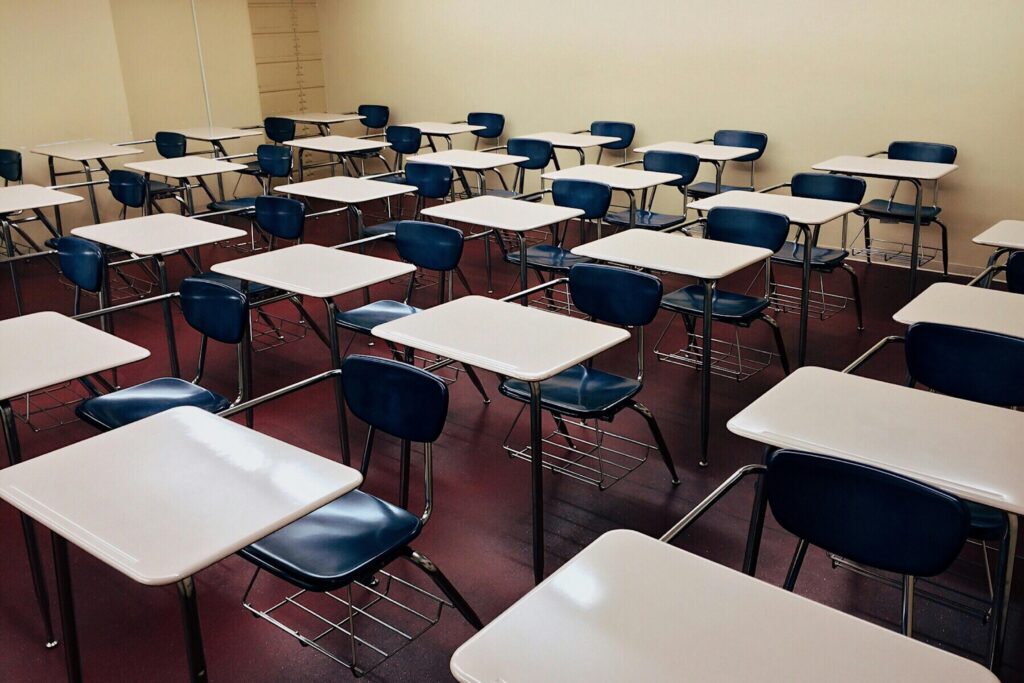
Students faced with many educational challenges after experiencing lockdown due to COVID-19. Photo curtesy of Pexels.
A recent study has placed Oklahoma as one of the lowest ranking school systems in the nation due to its low performance that may be due to lingering effects of COVID-19 in classrooms, prompting teachers to explore new strategies of classroom management and behavior as they confront the ongoing challenges due to the pandemic.
Recently WalletHub, an economic journal, conducted a study of school systems across the nation and ranked them according to their performance, funding, safety, class size and instructor credentials. Oklahoma was ranked 50th.
Since the onset of the 2020 COVID-19 Pandemic, school systems all across the nation are still finding themselves in a state of recovery, Oklahoma included.
The Oklahoma State Report Card proves the effects from COVID-19 are far from over.
According to the Oklahoma State Report Card, since the 2020 COVID-19 outbreak, student performance has faced a significant decline.
During the 2018-2019 academic school year, one year before the pandemic, only 30% of students were performing below the basic level with 37% performing at the basic level and 34% at proficient or higher.
During the 2022-2023 academic school year 37% of all students performed below the basic level with only 36% performing at the basic level and 27% performing at proficient or higher.
Teachers are encountering unprecedented behavioral challenges in the classroom, which could be to blame for the lower overall performance.
Students who were at a critical stage of social development during the pandemic are facing their own set of challenges.
According to the National Library of Medicine, self-regulation skills are considered fundamental to the types of dysregulated, externalizing behaviors that appear most affected by the pandemic: they shape children’s ability to focus, control dominant impulses, switch attention between activities, and remember multi-step directives.
The strain faced by children and parents resulting from the pandemic can result in more challenging behavior among children which is often understood to represent underlying emotional and mental health issues.
Students now more than ever are struggling developmentally, in and out of the classroom and teachers are now faced with the responsibility of quickly adapting to these changes.
“The difference from Covid to now is unbelievable,” said Broadmoore Elementary Librarian, Denise Testerman. “As teachers we are having to learn how to help kids because a lot of their responses are responses to trauma. We’re having to learn different ways of interacting with kids and how to help them and get them what they need.
“There are more meltdowns, not across the board, but one kid can completely change the atmosphere of the classroom. They feel that turmoil inside of them and they don’t know what to do with it. As teachers were just having to learn how to work with it,” Testerman added.
While elementary aged students are lacking in emotional regulation, adolescents who spent critical periods of their social development in lockdown are also facing significant challenges as well.
I think the biggest thing about being a teacher is when a student is acting out, when a teacher is acting out, when your’e not able to communicate with a student, the biggest thing is to ask why, said first year Spanish teacher, Taylor Niehoff. “People don’t do things for no reason, there’s always a why.”
Comments by Sydney Tatom